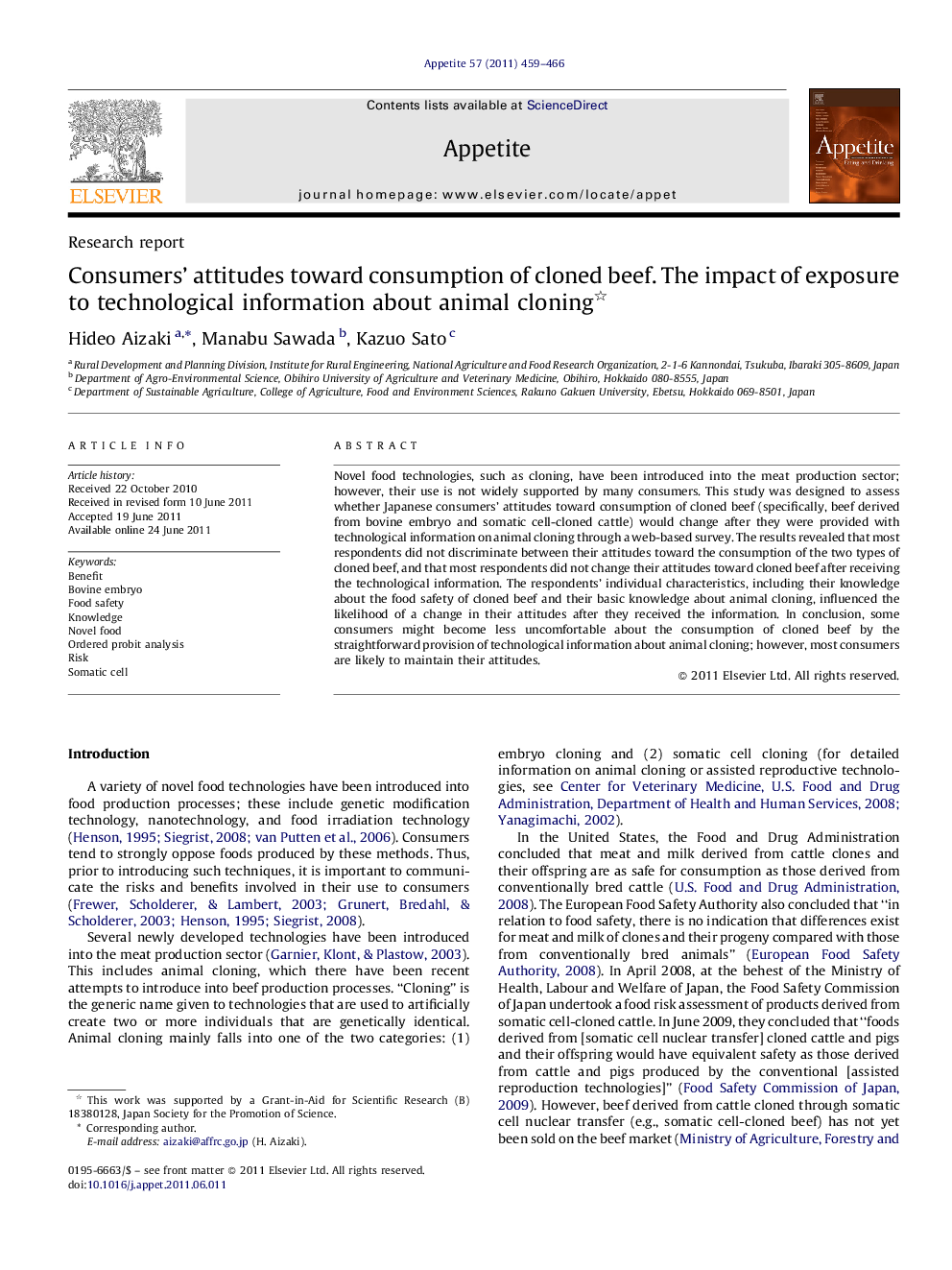| Article ID | Journal | Published Year | Pages | File Type |
|---|---|---|---|---|
| 940051 | Appetite | 2011 | 8 Pages |
Novel food technologies, such as cloning, have been introduced into the meat production sector; however, their use is not widely supported by many consumers. This study was designed to assess whether Japanese consumers’ attitudes toward consumption of cloned beef (specifically, beef derived from bovine embryo and somatic cell-cloned cattle) would change after they were provided with technological information on animal cloning through a web-based survey. The results revealed that most respondents did not discriminate between their attitudes toward the consumption of the two types of cloned beef, and that most respondents did not change their attitudes toward cloned beef after receiving the technological information. The respondents’ individual characteristics, including their knowledge about the food safety of cloned beef and their basic knowledge about animal cloning, influenced the likelihood of a change in their attitudes after they received the information. In conclusion, some consumers might become less uncomfortable about the consumption of cloned beef by the straightforward provision of technological information about animal cloning; however, most consumers are likely to maintain their attitudes.
► We assess the attitudes of Japanese consumers toward the consumption of cloned beef. ► We also examine the effects of providing information on their attitudes. ► Most respondents are uncomfortable about the consumption of cloned beef. ► Most respondents do not change their attitudes after receiving information.
